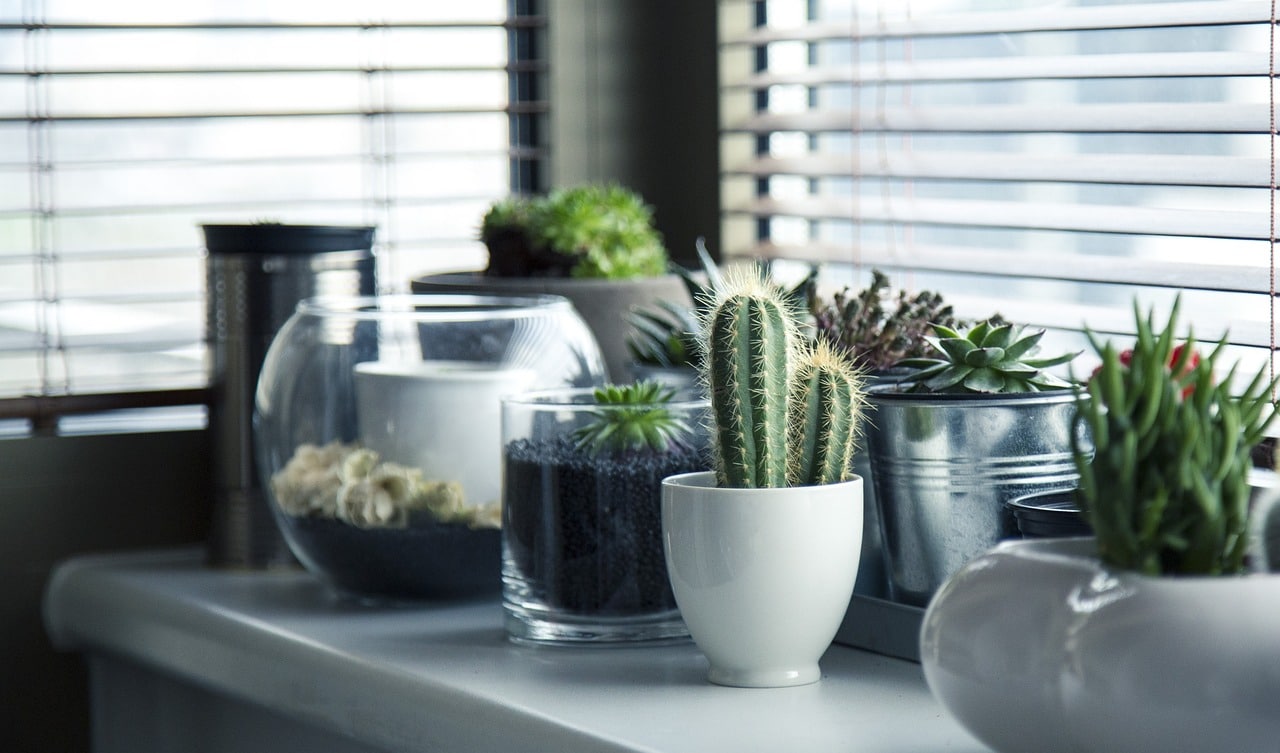More than just pleasant decorations, indoor plants are poised to be your home’s unsung heroes. By bringing in these green companions, you invite a host of benefits that enrich your living space and contribute to your well-being. In this article, we’ll delve into the advantages that indoor plants present, including improving air quality, boosting mood and mental health, enhancing productivity, promoting healing, and contributing to a well-rounded interior design.
Indoor Plants for Improved Air Quality
The role of indoor plants in improving air quality is scientifically grounded. Based on a landmark study by NASA, certain species of plants can filter harmful substances such as benzene, formaldehyde, and trichloroethylene, common pollutants found in homes. These toxins can emanate from everyday items like cleaning solutions, carpets, or paint.
Cela peut vous intéresser : How to create a dining area in a small kitchen
Having plants around the house can also increase the overall humidity. They do this by releasing moisture vapor, which in turn, can hydrate dry skin, soothe sore throats, and deter respiratory ailments. With indoor plants, you’re not just getting a natural air purifier but also a low-cost humidifier, making your home a healthier place to dwell in.
Indoor Plants as Mood and Mental Health Boosters
Surrounding yourselves with indoor plants can significantly uplift your mood and improve your mental wellness. Their calming presence can reduce stress and anxiety, making them perfect companions for today’s fast-paced lifestyle.
Sujet a lire : The importance of a good ventilation system
Research from the American Horticultural Therapy Association indicates that interaction with plants can decrease levels of cortisol, the stress hormone. Meanwhile, colors like green have a soothing effect, which can help people relax and feel more comfortable. Indoor plants can also instill a sense of accomplishment after taking care of them, providing a natural mood booster.
Indoor Plants for Enhanced Productivity and Focus
Believe it or not, having indoor plants can also enhance your productivity and focus. A study published in the Journal of Environmental Psychology found that having plants in the workplace improved employees’ concentration, job satisfaction, and perceived air quality.
Plants have a tranquil quality that can make a space more conducive for work or study. They can help reduce noise levels by absorbing sounds, creating a quieter, more peaceful environment. So, whether you’re working from home or studying for an exam, having plants around can help you stay focused and productive.
Indoor Plants as Natural Healers
Some indoor plants offer medicinal properties that can promote healing. Aloe Vera, for example, is widely known for its skin-soothing capabilities. It can be used to treat minor burns, cuts, and skin irritations. Chamomile, another popular plant, can be used to make herbal tea that aids sleep and digestion.
The Snake plant, also known as mother-in-law’s tongue, releases oxygen at night, making it an ideal plant for the bedroom to promote good sleep. Lavender, on the other hand, is widely recognized for its calming scent, which can help reduce stress and promote sleep.
Indoor Plants for Aesthetic Appeal
Finally, let’s not disregard the aesthetic appeal of indoor plants. They can add a touch of nature to your interior design, making spaces feel more welcoming and vibrant.
From large, leafy plants that make a statement to miniature succulents that add a subtle touch, there’s a wide range of indoor plants to suit every style and space. They can also be used to create visually appealing focal points, drawing the eye and adding depth to room design. Overall, indoor plants are a versatile decor element that can blend seamlessly with various interior design styles, from minimalist to bohemian.
In all, indoor plants offer a multitude of benefits that go beyond their aesthetic appeal. They contribute to your home’s air quality, your mood, your productivity, and even your health. By introducing plants into your living space, you’re investing in a whole host of advantages that make your house much more than just a home, but a sanctuary of well-being and positivity.
Indoor Plants for Better Sleep
Aside from providing a natural source of calming ambiance, certain indoor plants can promote better sleep. The Snake plant, for instance, is renowned for its ability to release oxygen at night, unlike most plants which primarily produce oxygen during the day. This increase in oxygen can significantly enhance the quality of your sleep and help you wake up feeling refreshed.
Other plants like Jasmine and Lavender boast soothing scents that have been proven to reduce anxiety and encourage a peaceful night’s sleep. The aroma of these plants can lower heart rate, blood pressure, and stress levels, leading to a more restful and undisturbed slumber.
Moreover, the English Ivy, an easy-to-care-for indoor plant, has been found by NASA to be one of the best air-purifying plants. It is especially proficient at cleaning the air of mold and other allergens which can disrupt sleep patterns and affect overall health.
In essence, incorporating indoor plants, specifically those with air purifying and calming qualities, can transform your bedroom into a tranquil sanctuary that supports optimal sleep.
Indoor Plants for Physical Health
Beyond their aesthetic, mood-boosting, and sleep-enhancing qualities, indoor plants can positively impact physical health. For instance, they can help deter common colds and respiratory ailments due to their ability to increase humidity levels and decrease dust in the home.
The Boston Fern, a popular houseplant, acts as a natural humidifier, which can be particularly beneficial during dry winter months or in air-conditioned rooms where dry skin, dry cough, and sore throats are prevalent.
Additionally, indoor plants like Spider plants are competent at filtering out harmful chemicals commonly found in homes like formaldehyde, xylene, and toluene. These toxins, often released by furniture, carpets, and electronic appliances, can cause headaches, eye irritation, and fatigue over time.
To sum up, indoor plants serve as silent guardians of your physical health, removing harmful pollutants from the air, boosting humidity, and helping to alleviate symptoms of common ailments.
In Conclusion
Indoor plants are truly the unsung heroes of the home. They are more than just vibrant additions to our living spaces, they actively contribute to our well-being and health in numerous ways. From purifying the air and boosting mood, to promoting productivity and aiding healing, the indoor plants infuse our homes with their life-enhancing benefits.
Moreover, their calming presence has been found to soothe our nerves and help us sleep better at night. They even offer a range of physical health benefits, protecting us from harmful pollutants and common ailments. And beyond all these benefits, they add to our homes a splash of nature’s beauty that can harmonize with any interior design.
By bringing plants indoors, we’re not just creating more aesthetically pleasing spaces, we’re also building healthier and more earth-friendly homes. Investing in indoor plants is, therefore, an investment in our overall well-being and the well-being of the environment. So, go ahead and transform your living space into a green haven that fosters positivity and health. You’ll be astonished by the transformation. Your home will become more than just a dwelling place; it will become your sanctuary.






